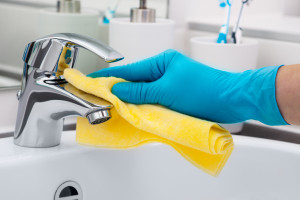Is Colorado Drinking Water Safe To Drink
It's a Sunday morning and you wake up and go into the kitchen to make some coffee. You go to the sink to pour out yesterdays coffee from the pot and begin to rinse and fill your coffee pot with water before pouring it into your coffee maker to enjoy a nice aromatic cup of your favorite coffee and you turn on the news to find THC in Colorado Drinking Water. You then begin to wonder how long the contaminant has been in the water and how much of it have you ingested then the reality of life hits you, how much of this contaminated water have your children been drinking and how can this bad water affect the livelihood of your children and what aftereffects will it have. Pokemon Go
Evidence of THC found in Colorado town's water supply - CNN.com
This is exactly what you do not want to find especially if you have children. So what is it that you do now that you have ingested contaminated drinking water? Who do you blame? How can this be prevented? Well the EPA usually gets involved as well as state agencies to find the source of the problem and get it corrected and will give guidance as to what to do and where to go. Placing blame is not the first thing you want to do especially in a case like this since the guilty party will come forth but the culprite will remain at large until caught. From http://www.cnn.com/2016/07/21/us/colorado-thc-water/
(CNN)Colorado
may be home to legalized recreational marijuana, but you won't find any
pot shops in the town of Hugo, where such businesses are not permitted.
Yet,
somehow, evidence of tetrahydrocannabinol, better known as THC, has
been found in the town's water supply, officials said Thursday.
Field
tests revealed presumptive positive results for THC, the principal
psychoactive chemical in cannabis, Officer Michael Yowell of the Lincoln
County Sheriff's Office said at a news conference Thursday.
Testing
continues to determine the level of concentration, he said. The
Colorado Bureau of Investigation and the FBI are assisting Lincoln
County's investigation.
It has not been confirmed
that the potential contamination was deliberate, Yowell said. But signs
of tampering were found on one of the five main wells that supplies
water to the town of 720 people about 100 miles southeast of Denver.
The contaminated well has been closed but preliminary tests suggest the entire water supply has been affected, Yowell said.
Hugo
Public Works notified the sheriff's office of the potential
contamination earlier Thursday after discovering signs of tampering,
Yowell said.
A reverse 911 call
went out to Hugo residents telling them not to drink the water, Colorado
emergency management department spokeswoman Micki Trost said.
The
sheriff's office issued updates via social media urging people not to
drink the water, shower or cook due to potential contamination.
How To Keep Your Drinking Water Safe
You can find out here how to keep your drinking water safe. Basically the best way is to filter your water but you can't use any filter which will not stop contaminants like this. You will need a Reverse Osmosis Drinking Water System and you will want to buy the best which can be purchased relatively inexpensive and will save you tons of worrying and will let you sleep at night knowing that your children as well as yourself and pets are drinking clean purified water. Water Softener
Safe Drinking Water
When you want to create clean water for your daily needs, you need to
find the best water filtration system now. Reverse osmosis can be
considered as a good filtration system that you can use in your daily
life. Reverse osmosis water is basically purified water, yes I said
it that a reverse osmosis system purifies water so you can consider it a
water purifier. It will give you safe clean great tasting water at
your sink without having to spend money on bottled water or wasting
water. It is super healthy drinking water and safe especially if you
live in Colorado or Flint Michigan


